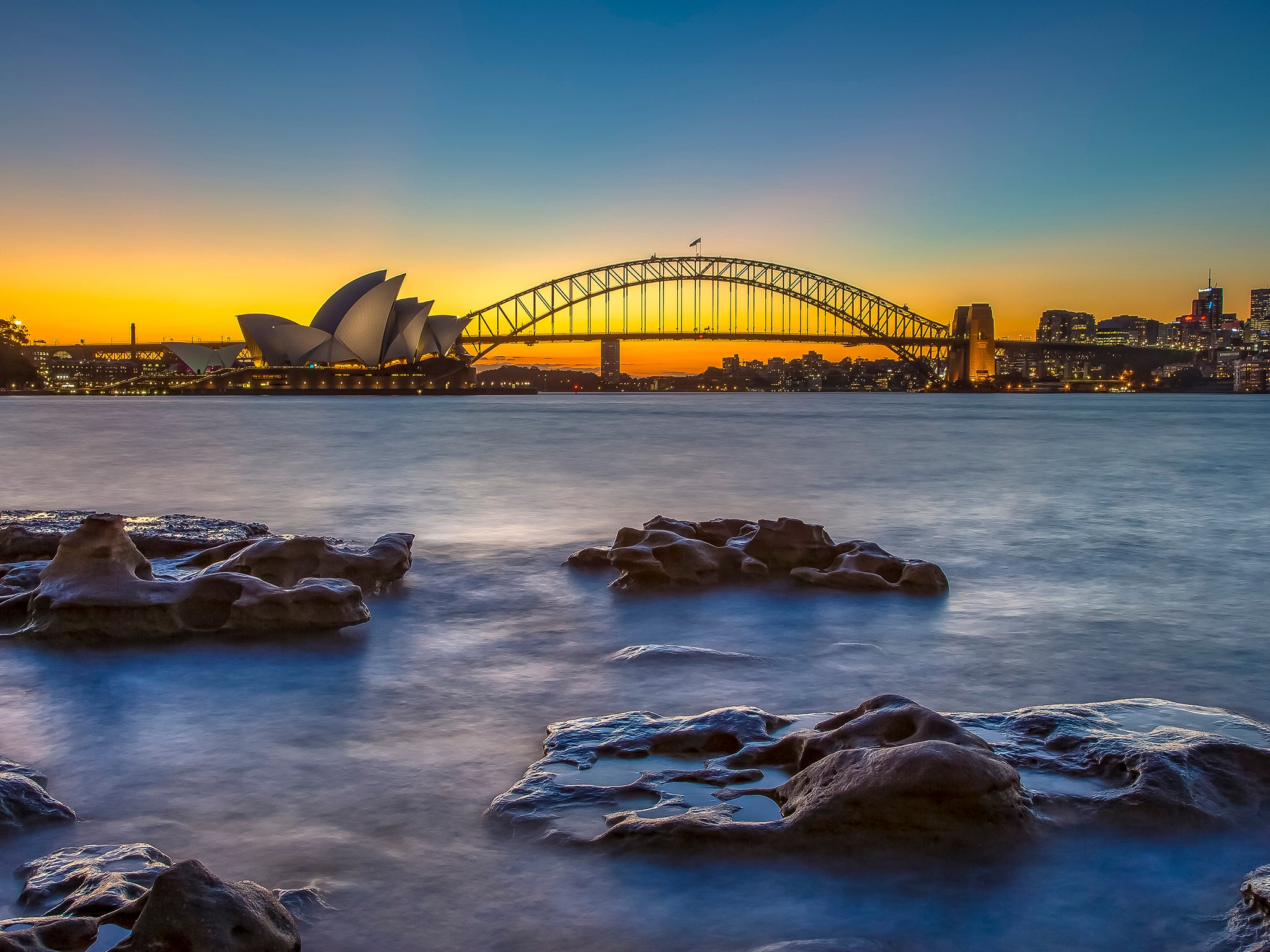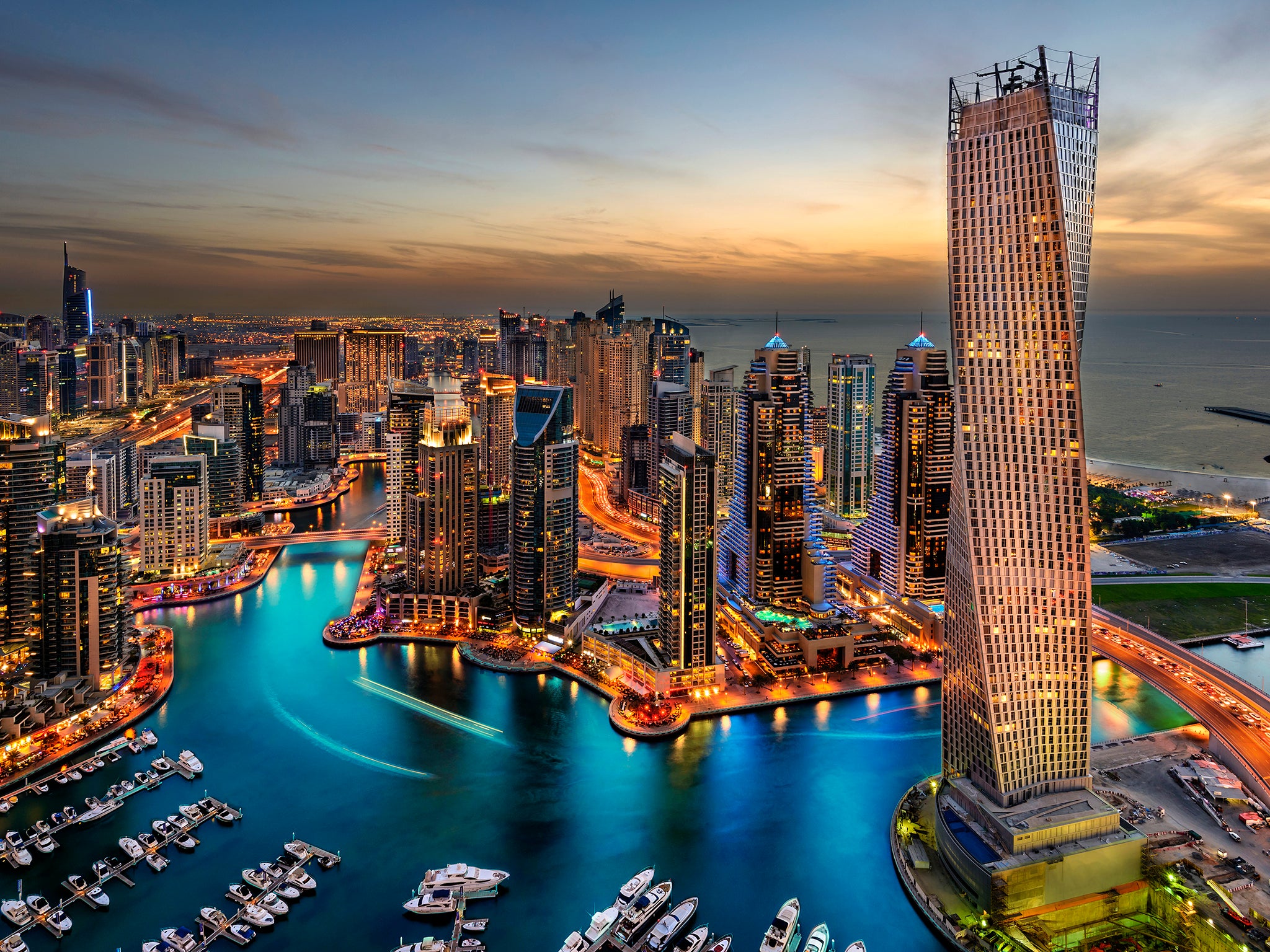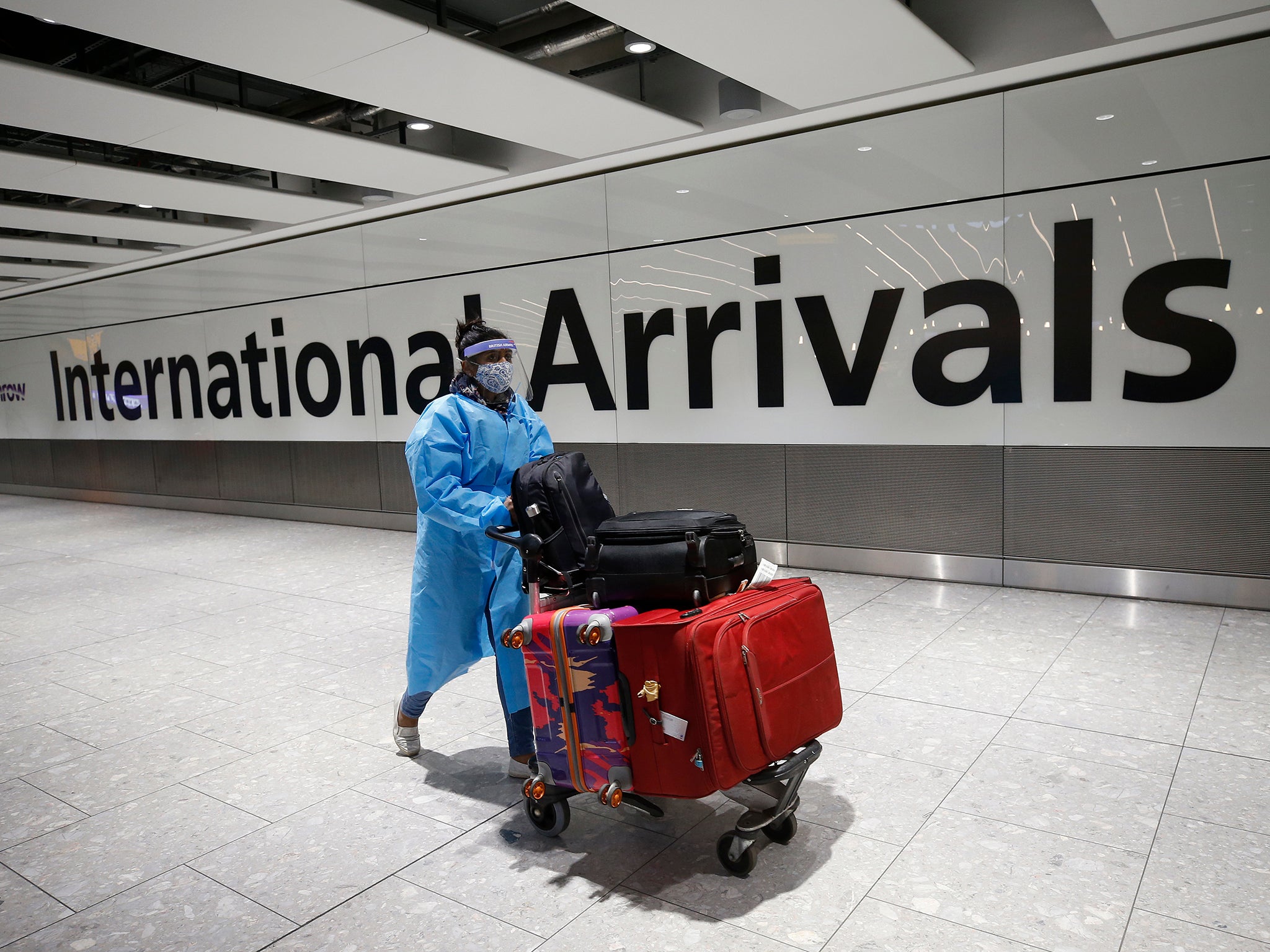Will I have to quarantine for a Christmas Australia trip?
Simon Calder answers your questions on festive plans, red list countries and navigating hotel quarantine


Q I have just booked flights to Australia for Christmas, leaving on 21 December. Could you please tell me your thoughts: do you think they will be allowing people to arrive without quarantine?
Jamie C
A Normally at this time of year, a large proportion of Christmas and new year flights between the UK and Australia have already been sold. Before the coronavirus pandemic, my strong advice to anybody hoping to head for Australia or New Zealand in the second half of December, returning early in January, was to book as soon as the tickets went on sale in the preceding January.
Trips to Australia last Christmas were, of course, wiped out as a result of the country’s ban on all foreign visitors; even returning citizens faced a long wait to be allowed on to a homebound flight and had to undergo hotel quarantine for two weeks when they finally reached Australian soil.
Looking at flights out on midwinter’s day, 21 December (midsummer in Australia, of course), returning a fortnight later, British Airways is selling tickets on its daily flight from Heathrow via Singapore to Sydney for just £1,258 – a good £500 less than I would expect at this phase in the selling season.
BA, like other airlines, is also offering an unprecedented amount of flexibility. But I still don’t believe that I would be a buyer, even at that attractive price.
Australia has just opened a “travel bubble” (officially a “safe travel area”) with New Zealand, which will benefit the tourism industries of both countries. But unlike many of the nations over which a flight to Sydney will travel, Australia is not desperate to allow overseas visitors from anywhere other than New Zealand.
“Australia is in no hurry to open up those borders,” the prime minister, Scott Morrison, said in a TV briefing this week. He didn’t want to put at risk “the way we are living in this country, which is so different to the rest of the world”. In tune with that message, Tourism Australia is talking up international travel from 2022 onwards.
It may be that UK visitors are particularly favoured if Covid rates continue to fall here. Being vaccinated is very likely to ease restrictions. But overall it looks to me unlikely that there will be relatively easy access to Australia during the remainder of 2021. Sorry I can’t be more optimistic.

Q Any idea why the United Arab Emirates is on the red list with India and Brazil? It’s crazy. People are going back to work in offices in Dubai.
Matt W
A Yes, as of Tuesday night I know exactly why the UAE is on the red list. The nation was added to the high-risk category on 29 January – a status requiring hotel quarantine for anyone arriving from Dubai, Abu Dhabi and the rest of the nation to the UK.
Like you, I had found it perplexing that a country with such a remarkable vaccination record should be subject to the toughest rules for travellers to the UK. Yet everyone over 16 is entitled to vaccination more or less on demand. Today the number of jabs is likely to overtake the population of the UAE, as second doses are administered.
Some people had suggested that the reason for the UK red-list ban was because ministers had been alarmed by the number of UK social media influencers who were posting from Dubai over Christmas and New Year. Although it was legal to travel abroad, the home secretary, in particular, was highly critical.
But we now know that the government has an extra, previously undisclosed criterion for adding a country to the red list: if it is home to a global aviation hub.
On Tuesday, the transport secretary, Grant Shapps, told an online ConservativeHome event that the Gulf state’s status as “major transit hub” meant UK health authorities could not be certain about travellers’ origins. He told the audience: “We are not restricting UAE because of levels of coronavirus.” The specific issue in the UAE, he said, “is one of transit”.
Mr Shapps says that the Joint Biosecurity Centre makes the decisions on red list countries.
“The Joint Biosecurity Centre can work wonders studying all this detail,” he said. “But eventually you get to the point where they are having to make too many assumptions about where people are travelling to/from. And that is a specific issue we have with the UAE as opposed to prevalence.”
The very same issue, you might imagine, must affect Istanbul airport – currently the busiest in Europe – as well as Frankfurt, Paris CDG and Amsterdam airports. But so far Turkey, Germany, France and the Netherlands have escaped the red list.
We will find out early next month who might make the quarantine-free “green list” – and you can be sure it won’t include the UAE.

Q If you travel back from a red list country but stay for 10 days in a country which is not on the red list, are you OK to enter the UK and escape hotel quarantine – and just quarantine at home?
Name supplied
A Yes, you have it exactly right. India has just become the 40th country on the red list – the most severe set of travel restrictions.
British and Irish citizens, and others with the right of residence here, are allowed to travel to the UK – but must pre-book a hotel quarantine package, starting at £1,750 for 11 nights.
That obligation is triggered by having been in a red list country in the past 10 days. That is the UK government’s sole interest: after 10 days somewhere off the red list, you are deemed no longer to be a traveller posing the highest risk. But, as you indicate, you must self-isolate at home for 10 days (or five if you take the test-to-release option at your expense).
From many red list countries, the obvious place to pause on a journey back to Britain is Turkey. It has excellent links from Asia and Africa, relatively low barriers to entry (though please check with the Turkish consulate where you start your journey) and everything you need to make a 10-day stay enjoyable. That includes a reasonably low cost of living, delicious food and drink and great people. And if you stay in Istanbul, I guarantee you will not tire of the city. It is the exact opposite of sitting in a dreary hotel room beside the runway at Heathrow.
With your red list status legitimately laundered, you can demonstrate to UK Border Force officials – by dint of the entry and exit stamps from Turkey – that you have not been in red list location for the past 10 days.
You will still need to take a pre-departure test and pre-book two post-arrival PCR tests, but that should cost perhaps one-tenth of the cost of hotel quarantine. I hope no one takes offence and says that I am encouraging people to exploit loopholes in the UK’s travel rules: I am simply explaining those rules and suggesting how to avoid the potentially extreme cost and inconvenience of “managed isolation”.

When the “traffic light” system begins, how will it work in terms of connecting flights? Will we have to take direct flights to green list countries to avoid more stringent restrictions?
Nick A
A Let me start with the customary reminder that travelling abroad from the UK for non-essential purposes is illegal. That will remain the case until 17 May at the earliest. When international travel restarts, which is currently planned for 17 May, each nation will be assigned a colour: red, amber or green, depending on the perceived risk to the UK of importing coronavirus and in particular “variants of concern”.
Only people travelling from “green” countries will escape quarantine when they return home (though they will still need to pay for tests before departure to the UK and after arrival).
Many other nations have allowed brief transit stops in high-risk areas on journeys from low-risk countries. Germany, for example, gives exemption from quarantine rules to “persons on connecting flights who do not leave the transit zone of an international airport”. But the UK does not: even an hour at an airport in an amber or red nation triggers quarantine upon entry to the UK.
The original Global Travel Taskforce vowed to tackle this problem, saying: “We will explore ways that transit could be safely facilitated, in line with public health requirements, without passengers needing to self-isolate on return to the UK.”
Since that report was published exactly five months ago, no progress appears to have been made. On the contrary, the transport secretary revealed this week that the UAE is on the UK red list “because they are a major transit hub”. Grant Shapps said: “The Joint Biosecurity Centre can work wonders studying all this detail, but eventually you get to the point where they are having to make too many assumptions about where people are travelling to/from.”
It is difficult to envisage any relaxation of the rule any time soon, and easy to see that other “major transit hubs” could be added to the red list. So direct flights, where they exist, are certainly the way to go.
Email your questions to s@hols.tv or tweet @simoncalder


Join our commenting forum
Join thought-provoking conversations, follow other Independent readers and see their replies
Comments